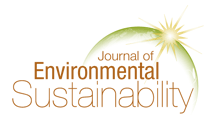Creative Commons License

This work is licensed under a Creative Commons Attribution 4.0 International License.
Abstract
The twin concepts of sustainable development and sustainability have been key points in new policies. Nonetheless, only the Western scientific perspective is typically considered, excluding other voices and leading to a very narrow vision of “sustainability”. The following article investigates the benefits to including indigenous knowledge and principles, considering their values rather than limitations and presents two specific case studies using the Mauri Model Decision Making Framework, a tool applied for environmental assessment, seen as a more cultural-friendly sustainable approach.
Recommended Citation
Bettini, Anna
(2021)
"Sustainable futures-Integrating Indigenous perspectives into an environmental assessment framework: An analysis of the Mauri Model,"
Journal of Environmental Sustainability: Vol. 8:
Iss.
1, Article 8.
Available at:
https://repository.rit.edu/jes/vol8/iss1/8
Included in
Indigenous Education Commons, Other International and Area Studies Commons, Social and Cultural Anthropology Commons
